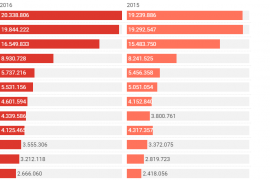How many years will a person who is 15 years old work on average in Europe today? The average for the whole of the European Union was last year of 35.9 years, three more than in 2000, according to data recently offered by Eurostat.
However, the differences between the different European countries are substantial. Thus, an Icelandic worker has a working life expectancy of 47 years, the longest in Europe, while in Turkey the average is 29 years.
If we analyze only the countries that belong to the European Union, the Swedes are those who will work more years on average (41.7), while the Italians are the ones who less (31.6). In Spain, the figure is 35.1 years.
In all European countries, with the exception of Romania, the expectation of working life has increased between 2000 and 2017.
 There are also substantial differences if we compare the working life expectancy of men and women in each country. In the whole of the European Union, the difference is five years: 38.3 years on average for men compared to 33.4 years for women.
There are also substantial differences if we compare the working life expectancy of men and women in each country. In the whole of the European Union, the difference is five years: 38.3 years on average for men compared to 33.4 years for women.
Only in one country, Lithuania, women (36.3 years) have a higher working life expectancy than men (35.4). And in the case of Latvia, the expectation is exactly the same: 36.2 years.
In Spain, the average working life of men is estimated at 37.2 years, while for women it is 32.8 years, almost 4 years and a half less.
The country of the European Union where there is a greater gender difference in the working years is Malta, with twelve years. Outside the EU, Turkey has the greatest difference, over 20 years old, with 39 years for men and only 18.5 for women.


















